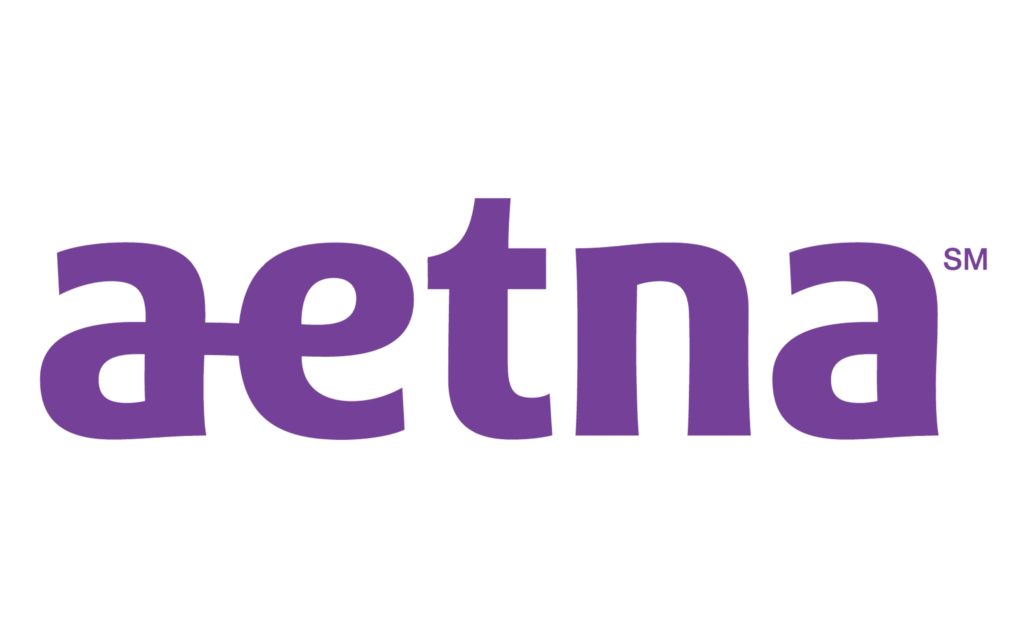Understanding Substance Use Disorders
Substance use disorders, or addictions, are prevalent and pervasive issues that affect millions of individuals globally. Understanding these disorders is the first step towards supporting those affected and finding effective resources for assistance.
Recognizing the Signs of Addiction
Recognizing the signs of addiction is crucial in the early stages of substance use disorders. Early identification of substance use problems is a much more effective solution compared to waiting for individuals to hit rock bottom. Treatment in the early stages is likely to be less intense, disruptive, and anxiety-inducing, making recovery more favorable.
Common signs of addiction include but are not limited to: changes in behavior, withdrawal from social activities, sudden changes in friends, secretive behavior, unexplained financial problems, and physical signs such as weight loss, changes in appetite or sleep patterns, and deteriorating physical appearance.
Common Types of Substance Addictions
There are several types of substance addictions that individuals may struggle with. According to the Addiction Center, in 2019, approximately 164.8 million individuals aged 12 or older in the United States were past-month users of alcohol.
The following table lists some common types of substance addictions:
| Substance | Description |
|---|---|
| Alcohol | Alcohol addiction is a chronic disease characterized by uncontrolled drinking and preoccupation with alcohol. |
| Nicotine | This is an addictive substance found in tobacco. It’s one of the most heavily used addictive drugs in the U.S. |
| Opioids | These include prescription pain relievers and heroin. Misuse of these drugs can lead to physical dependence and withdrawal symptoms. |
| Cocaine | This is a powerful stimulant drug. It can cause serious health problems when misused. |
| Cannabis | Despite its legalization in some states, cannabis can still lead to addiction, especially when used heavily. |
| Stimulants | These include drugs like methamphetamine and prescription medications for attention deficit hyperactivity disorder (ADHD). |
| Hallucinogens | These are drugs that cause hallucinations or distortions in a person’s perceptions of reality. |
Understanding the substance use disorder and its related signs can help in providing the necessary support and resources for someone with addiction. It is of utmost importance to seek help from healthcare professionals or reliable sources such as official government websites for accurate information and assistance (DEA Recovery Resources).
The Impact of Substance Use Disorders
Substance use disorders carry a significant impact, affecting both individuals and society at large. Understanding these consequences is crucial for those seeking resources for supporting someone with addiction.
Emotional and Physical Consequences
The emotional and physical toll of addiction is immense. It contributes more to the burden of disease than heart attacks, diabetes, or cancer in the U.S Addiction Center. Nearly 21 million Americans struggled with at least one addiction in 2014, yet only 10% received treatment American Addiction Centers.
Without early intervention, family members of individuals struggling with addiction can expect crises such as arrests, medical emergencies, job loss, public embarrassment, and even death. Furthermore, family members may develop their own health issues and symptoms, including headaches, backaches, digestive problems, depression, anxiety, and panic attacks Drugfree.org.
The death toll from addiction is staggering. Over 64,000 Americans died from drug overdoses in 2016, a majority involving an opioid of some kind. An estimated 88,000 individuals die from alcohol-related causes annually in the United States, making it the third leading preventable cause of death in the country American Addiction Centers.
Societal Implications and Costs
Beyond the personal toll, the societal implications and costs of substance use disorders are extensive. In the United States, the cost of addiction “exceeds $600 billion” annually when considering healthcare, criminal justice, legal, and lost workplace productivity costs Addiction Center.
This highlights the immense strain that addiction places on various societal structures, including:
- Healthcare systems: The cost of treating addiction and related health conditions is substantial.
- Criminal justice systems: Addiction often leads to legal trouble, increasing the strain on legal systems.
- Workplace productivity: Addiction can significantly impact an individual’s ability to work, leading to lost productivity.
Helping someone with addiction not only benefits the individual but can also alleviate some of these societal pressures. The use of recovery resources is a step toward reducing the overall societal cost of addiction.
Approaches to Helping Someone with Addiction
Helping someone with addiction is a challenging task, but the right approach can make a significant difference. Understanding the best ways to start a conversation and the importance of early intervention can guide efforts to provide effective support.
Starting the Conversation
When someone close to you is dealing with addiction, initiating a conversation about the issue is a crucial first step. However, it’s important to approach this conversation carefully and empathetically. A discussion about a loved one’s addiction may be a productive experience and not necessarily lead to drastic reactions. If the person with addiction hasn’t noticed behavioral changes or the impact of their substance use, a conversation can be enlightening. Talking with care and following guidelines can help address the issue effectively (Drugfree.org).
Importantly, the conversation should be non-judgmental and focused on expressing concern about the person’s well-being. It’s also beneficial to educate oneself about addiction and available treatment options before the conversation. This knowledge can help clarify any misconceptions the person might have and provide concrete steps they can take to address their substance use.
Early Intervention and Its Importance
Research underscores the importance of early intervention in dealing with addiction. Early identification of substance use problems can make treatment more effective and less disruptive, leading to a more favorable recovery outcome. Treatment in the early stages is likely to be less intense, disruptive, and anxiety-inducing, making recovery more favorable (Drugfree.org).
Without early intervention, both the individual struggling with addiction and their family may face severe crises, including arrests, job loss, public embarrassment, and even death. The stress resulting from these crises can also lead to health issues among family members, such as depression, anxiety, and various physical ailments (Drugfree.org).
Supporting someone with addiction also involves seeking help for oneself. Taking care of one’s emotional well-being and acquiring the right resources for supporting someone with addiction can bring new direction and meaning to one’s life, thereby better equipping oneself to support the individual in question (Drugfree.org).
In some cases, individuals struggling with addiction may be able to successfully cut back on substance use if the problem is not severe or has only occurred over a short period. However, many individuals may struggle to do so or fail in their attempts. Therefore, depending on the severity of the problem and the individual’s history, seeking a professional assessment and evaluation may be necessary.
In conclusion, when it comes to supporting someone with addiction, starting an open and empathetic conversation and recognizing the importance of early intervention are crucial steps. By educating oneself and seeking appropriate support, one can effectively help someone navigate the path to recovery.
The Role of Treatment in Recovery
Treatment plays a pivotal role in the recovery process for someone with a substance use disorder. It provides them with the necessary tools and resources to overcome their addiction and regain control of their life. The treatment options vary in intensity and setting, including evidence-based treatments, medication-assisted treatment (MAT), and inpatient and outpatient programs.
Evidence-Based Treatments and Therapies
Evidence-based treatments, such as counseling and therapy, are essential components of support for someone with addiction. These therapies aim to address the root causes of the addiction, helping individuals understand their triggers and develop coping mechanisms to deal with them effectively.
For alcohol use disorder, the Sinclair method—a treatment that focuses on reducing use rather than complete abstinence—may be a viable option (Drugfree.org).
Medication-Assisted Treatment (MAT)
Medication-assisted treatment (MAT) is another effective resource for individuals struggling with substance use disorders, particularly for opioid addiction. MAT combines medication with counseling and behavioral therapies to provide a holistic approach to treatment.
Outpatient vs. Inpatient Program Choices
Treatment for substance use disorder can occur in various settings, addressing physical, psychological, emotional, social issues along with substance use. These include outpatient and inpatient programs, each with their own unique characteristics.
| Program Type | Description |
|---|---|
| Outpatient | Patients live at home and attend treatment sessions during the day. |
| Intensive Outpatient | Similar to outpatient, but treatment sessions are more frequent and longer in duration. |
| Partial Hospitalization | Patients spend most of their day at the hospital, but can return home in the evening. |
| Residential (rehab) | Patients live at the treatment facility and receive around-the-clock care. |
| Inpatient | Hospital-based programs that provide intensive care for severe addictions. |
Each program varies in intensity and setting, allowing for a more personalized approach to treatment.
Choosing the right treatment for someone with a substance use disorder is a crucial step on the path to recovery. It’s important to consider all available options and consult with a healthcare professional to find the most suitable resources for supporting someone with addiction.
The Support System Surrounding Recovery
A robust support system is crucial when navigating the path to recovery from substance use disorders. This system can include professional help, such as therapists and doctors, but also peers, support groups, and family members. This network plays a vital role in providing emotional support, encouragement, and understanding, which are integral to the healing process.
Support Groups and Peer Support
Support groups like Alcoholics Anonymous (AA) or Narcotics Anonymous (NA) can provide valuable peer support and guidance for individuals recovering from addiction. These groups are often led by individuals who have firsthand experience with addiction and recovery, offering a unique perspective that can be both inspiring and relatable.
These groups serve as safe spaces where individuals can share their experiences, learn from others, and gain a sense of community. This sense of belonging can be instrumental in the recovery process, as it helps individuals feel understood and less alone in their journey.
In addition to traditional support groups, there are also numerous online forums and communities that offer peer support. These virtual platforms can be particularly useful for individuals who may not have access to in-person groups, or who may feel more comfortable communicating in a digital environment.
Importance of Family Therapy
Family involvement is another crucial component of the support system surrounding recovery. Substance use disorders can strain family relationships, and family therapy can help address these tensions, improve communication, and foster a supportive environment for recovery.
Family therapy and support programs are beneficial resources for helping both the individual with addiction and their loved ones cope and heal together. They can provide education about addiction, teach coping strategies, and help families build healthier dynamics.
Involving family in the recovery process can also help address any enabling behaviors, set appropriate boundaries, and develop a better understanding of the disease of addiction. This collaborative approach can lead to stronger family relationships, which can be a source of strength and support for the individual in recovery.
In conclusion, a comprehensive support system involving peer groups and family therapy in Charlotte, NC is essential in supporting someone with addiction. It not only aids in the recovery of the individual but also helps in healing the relationships around them, creating a healthier environment for lasting recovery.
Utilizing Resources for Immediate Assistance
In times of crisis related to addiction, having immediate access to the right resources can be a lifeline. This section explores two main kinds of immediate assistance resources: hotlines and emergency services, and official government resources.
Hotlines and Emergency Services
For immediate assistance in an addiction crisis, hotlines and emergency services are vital. In the United States, individuals can call or text 988 for help. This service provides immediate, free, and confidential support in times of distress. It also connects individuals with trained counselors who can provide guidance and resources for supporting someone with addiction (SAMHSA).
In addition to 988, there are also several other hotlines available that focus on specific types of substance use disorders. These hotlines can offer immediate help, advice, and resources to assist in crisis scenarios.
Official Government Resources
Government resources provide reliable, accurate, and up-to-date information on substance use disorders and recovery. Official government websites, specifically those ending in .gov, are secure platforms for accessing such information and assistance (DEA Recovery Resources).
These websites often offer comprehensive resources for supporting someone with addiction, including information on evidence-based treatments, counseling and therapy options, and medication-assisted treatment. They may also provide links to approved treatment centers, resources for finding support groups like Alcoholics Anonymous (AA) or Narcotics Anonymous (NA), and information on how to navigate insurance and financial aspects of treatment.
Some of these resources include:
- The Substance Abuse and Mental Health Services Administration (SAMHSA)
- The National Institute on Drug Abuse (NIDA)
- The Drug Enforcement Administration (DEA)
Accessing these resources can provide a starting point for understanding the path to recovery and the various options that are available. It’s important to remember that while immediate assistance is crucial during a crisis, long-term support and treatment are key to recovery. Using these resources can help create a comprehensive plan for supporting someone with addiction.
Additional Considerations in Supporting Recovery
Substance use disorder recovery is a complex process that goes beyond medical treatment. It encompasses several aspects of a person’s life that contribute to a healthier, addiction-free lifestyle. In this section, we delve into two crucial components of recovery: stable housing and continual care and rehabilitation services.
The Importance of Stable Housing
Stable housing is a key need for anyone in recovery. It provides a safe and secure environment, free from triggers that might lead to relapse. A stable living situation can significantly influence the recovery process, providing individuals with the structure and support they need to maintain sobriety (Drugfree.org).
There are various types of recovery housing options available, each catering to different needs and stages of recovery. Some people might benefit from a sober living home, which offers a substance-free environment and support from peers who are also in recovery. Others might require a more intensive residential treatment program, particularly during the initial stages of recovery.
It’s crucial to consider the individual’s needs and circumstances when choosing a housing option for recovery. Factors such as the severity of the addiction, the presence of co-occurring mental health disorders, and the individual’s support system should all be taken into account.
Continual Care and Rehabilitation Services
Treatment for substance use disorder is not a one-time event but a long-term process that involves continual care and rehabilitation services. It can occur in various settings, such as inpatient or outpatient, addressing physical, psychological, emotional, and social issues along with substance use (Drugfree.org).
Here are the different types of treatment programs available, each varying in intensity and setting:
| Treatment Program | Setting |
|---|---|
| Outpatient | Regular visits to a clinic or treatment center |
| Intensive Outpatient Programs | More frequent and longer visits compared to outpatient |
| Partial Hospitalization Programs | Day treatment at a hospital or treatment center |
| Residential (rehab) | Live-in treatment facility |
| Inpatient programs | Hospital-based programs |
To support someone with addiction, it’s crucial to provide a comprehensive range of services to address the full scope of the problem. This includes continuing care, family services, mental health treatment, vocational services, educational services, and recovery support groups.
For those struggling with alcohol use, the Sinclair method, a form of treatment that focuses on reducing use rather than complete abstinence, may also be considered (Drugfree.org).
Remember, every individual’s path to recovery is unique, and the resources for supporting someone with addiction should adapt to their specific needs and circumstances. By understanding the importance of stable housing and continual care, one can provide more effective support to those on their journey towards recovery.







